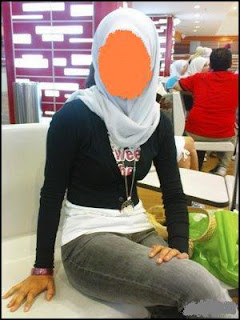Note: This might be too long to read, but it is very helpful for those who want deep understanding and explanation regarding on this issue of niqab, whether it is compulsory or not to be worn by Muslim women…

The Qur'an says (Al-Qur'an 4:59):
"O you who believe! Obey Allah and obey the Messenger and those charged with authority among you. If you differ in anything among yourselves, refer it to Allah and His Messenger if you do believe in Allah and the Last Day: that is best and most suitable for final determination."
As mentioned in the verse quoted above, when people in authority, the rulers, leaders, imams and scholars differ amongst themselves, our Creator instructs us to look into the Qur'an and the authentic Ahadith for guidance. The legitimacy, relevance and accuracy of the reasons and evidence provided by these people should be evaluated in the light of the Qur'an and the Sunnah. However, it should be borne in mind that infallibility belongs to Allah alone and a scholar, being a human, can make an error of judgment.
There is no clear-cut authentic hadith to the effect of making the face veil obligatory. Those scholars, who insist that covering the face is obligatory for Muslim women, interpret 'al-idnaa' in the verse of the jilbaab (Al-Qur'an: 33:59) to mean, "covering the face". This interpretation is erroneous because the basic meaning of the word in Arabic is "to come close", as the well-known scholar, ar-Raaghib al-Asbahaanee mentions in his authoritative dictionary 'al-Mufradaat'. Some people claim that jilbaab is "a garment which covers the face". This too is a misinterpretation as it is contrary to the interpretation of the leading scholars of past and present as well, who define jilbaab as a garment which women drape over their head scarves (khimaar).
Some people claim that the khimaar (headscarf) in Al-Qur'an 24:31 covers the head and the face, whereas linguistically the word only means a head covering. The Prophet (pbuh) is reported to have said "Allah does not accept the prayer of a woman who has reached puberty unless she wears a khimaar". (Sunan Abu Dawood, vol. 1, hadith No. 641)
However, no scholar insists on covering the face in Salaah for women based on the hadith quoted above, which further substantiates that khimaar does not mean covering the face. Shaykh Naasiruddeen al-Albaanee, one of the foremost scholars of recent times has clarified in detail, the errors made by these scholars who insist on the obligatory nature of the face veil in his books ar-Radd al-Mufhim & Jilbaab al-Mar'ah al-Muslimah (3rd edition, 1996, al-Maktabah al-Islaamiyyah). Likewise, other scholars like Ibn Muflih al-Hambalee, an-Nawawee, al-Qaadee 'Iyaad are too of the opinion that covering the face is not obligatory.
As stated earlier, that there is not a single authentic hadith that makes covering the face obligatory. On the other hand, we find several ahadith which prove that covering the face is not compulsory in Islam. For instance, once while the prophet was admonishing and preaching to a group of women after having admonished the men on the Id day, "...a woman having a dark spot on her cheek stood up..." seeking clarification on the subject the prophet was discussing. (Sahih Muslim, Vol. 2, Hadith No. 1926)
It is understood from the above-mentioned hadith that the woman having interaction with the prophet was not covering her face nor did the prophet command her to do so. It is incumbent upon every Muslim to enjoin right and forbid wrong, as Allah instructed us in the Glorious Qur'an. Thus we cannot expect the prophet, on whom the Qur'an was revealed, to let the woman keep her face uncovered after having known the obligation of covering the face. Narrated Ata bin Abi Rabah (R.A.).
Ibn 'Abbas said to me, "Shall I show you a woman of the people of Paradise?" I said, "Yes." He said, "This black lady came to the Prophet and said..."(Sahih Bukhari, Vol. 7, Hadith No. 555 - Dar Al Arabia- Beirut- Lebanon & Sahih Muslim Hadith No. 6571-Darusslam- Arabic)
The hadith quoted above proves that the 'woman of the people of the paradise' was not covering her face when she had visited the prophet nor was she covering it when Ibn 'Abbas was discussing about her later. Some may argue by saying she could be recognized owing to the dark complexion of her hand and not due to the exposure of her face. However, this argument would carry no weight since she was not the only black woman at the time of the prophet. Moreover, to identify a person, the aspect of exposure of the face is of immense significance.
The Prophet (pbuh) is reported to have said, "...The Muhrima (a woman in the state of Ihram) should not cover her face, or wear gloves." (Sahih Bukhari, Vol. 3, Hadith No. 1838)
With regards to the hadith quoted above, some people say that the commandment of the prophet (pbuh) not to cover the face is specifically for the women in the state of Ihram, thus it cannot be used as an evidence because in Ihram certain rules and regulations change. However, the point to be noted here is that the things that are Mustahab (recommended) can be made Haraam (forbidden), like the cutting of nails, even the things that are Mubah (permissible) or Mustahab (recommended) can be made Fard (obligatory), e.g. wearing two pieces of white unsewn cloth is made Fard for a man, while normally it is Mubah (permissible). But anything that is Haraam in the normal course of life can never be made Fard. Hence, if exposing the face is Haraam for women, then how can it be made Fard in Ihraam?
During the day of Nahr (10th Dhul-Hijja), when Al-Fadl bin 'Abbas was riding behind the prophet on his she -camel, "...a beautiful woman from the tribe of Khath'am came, asking the verdict of Allah's Apostle. Al-Fadl started looking at her as her beauty attracted him. The Prophet looked behind while Al-Fadl was looking at her; so the Prophet held out his hand backwards and caught the chin of Al-Fadl and turned his face (to the other side) in order that he should not gaze at her..." (Sahih Bukhari, Vol. 8, Hadith No. 6228)
In the above-mentioned hadith we find Al-Fadl looking at the lady because her beauty attracted him. Here too, it is understood that the face of the lady was exposed as the hadith says that the woman was beautiful. Obviously, it is the face that plays the most significant role in making a person being perceived as ugly or beautiful. In spite of this, the prophet didn't instruct the lady to cover her face but instead turned the face of Al-Fadl in order to prevent him from staring at her, further substantiating the verse of the Qur'an from Surah An-Noor, 24:30, which says:"Say to the believing men that they should lower their gaze and guard their modesty: that will make for greater purity for them: and Allah is well acquainted with all that they do."
The Qur'an further says in the next verse:
And say to the believing women that they should lower their gaze and guard their modesty; that they should not display their beauty and ornaments except what (must ordinarily) appear thereof... (Al-Qur'an 24:31)
When Ibne Abbaas (RA), the leading commentator of the Qur'an was asked about the verse mentioned above as to what it meant, he replied, "it refers to the face and hands". (Collected by Ibn Abee Shaybah in al-Musannaf, Vol. 3, p. 540 & 541, hadith no. 16997 & 17012 and al-Bayhaqi in Sunan al- Kubraa. Al-Albaanee ruled in Jilbaab al-Mar'ah al-Muslimah, pp 59-60, that the isnaad of this statement is saheeh.)
Some scholars argue that all the ahadith, which speak of women's faces being seen, are of the time earlier than the revelation of the verses of Al-Qur'an 33:59 & 24:31, which make covering the face compulsory. Firstly, as discussed earlier, these Qur'anic verses do not make covering the face compulsory for women. Secondly, to prove that these verses make the covering of women's face compulsory, they have to quote an authentic hadith for it, which they don't. Thirdly most of the ahadith quoted above, are of the time after these Qur'anic verses were revealed.
Thus, it can be concluded that covering the face is not obligatory for women. However, covering the face was obligatory for the Ummul Mu'mineen, the wives of the Prophet (pbuh) as was Tahajjud obligatory for the Prophet (pbuh). Although Muslims are exempted from its obligation, it is still a highly recommended Sunnah for the Muslims. The scholars unanimously agree that it is preferable for Muslim women to cover their faces. Thus it is not compulsory for Muslim Women to cover their faces but those women who cover their faces may continue to do so if they wish.
And Allah knows the best.














































